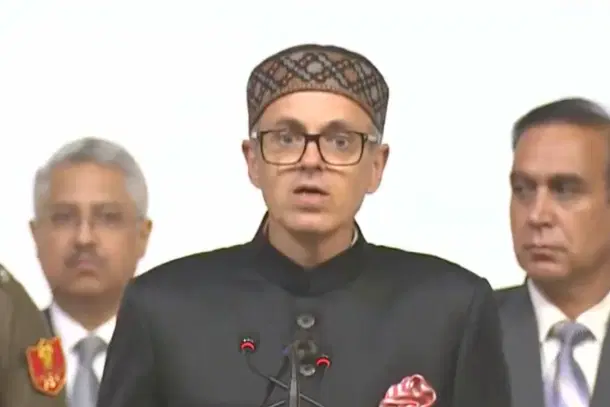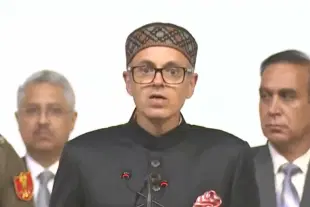News Brief
'Drought-Like Situation In Jammu': J&K CM Omar Abdullah Opposes Proposed Diversion Of Surplus Indus River System Water To Punjab
Arun Dhital
Jun 20, 2025, 04:01 PM | Updated 04:01 PM IST
Save & read from anywhere!
Bookmark stories for easy access on any device or the Swarajya app.


Jammu and Kashmir Chief Minister Omar Abdullah has opposed the proposed diversion of surplus water from the region’s three western rivers, Indus, Jhelum, and Chenab, to Punjab through a new 113 km-long canal.
"I will never permit this. Let us use our water for ourselves first... There is a drought-like situation in Jammu," Abdullah said, news agency ANI reported.
"As per the Indus Water treaty (IWT), three rivers were given to Punjab, and we weren't given a drop of water by them when we needed it the most. We have got some water after putting up a fight through the Shahpur Kandi barrage project, but now I will not allow diverting the water of Jammu and Kashmir to Punjab," Abdullah was quoted as saying by ETV Bharat.
He said at present Jammu requires water as the taps are running dry.
"My priority will be to provide water to people of Jammu and Kashmir, and are working on lifting the water from Akhnoor towards Jammu and also on the Tulbul navigation barrage," he added.
Recently, India launched a feasibility study for a proposed 113 km canal aimed at diverting surplus water from the Chenab River in Jammu and Kashmir to the states of Punjab, Haryana, and Rajasthan.
The proposed canal is expected to link with existing canal infrastructure at 13 different points, enabling efficient water distribution across regions.
It is designed to optimise the utilisation of India’s share of waters from both, the eastern rivers, Ravi, Beas, and Sutlej, and the western rivers, Indus, Jhelum, and Chenab, under the Indus Waters Treaty.
India has suspended the six-decade old Indus Water Treaty with Pakistan in the aftermath of the terror attack in J&K's Pahalgam, in which 26 people, mostly tourists, were brutally killed by Pakistan-backed terrorists.
Earlier, Omar Abdullah has also called for the revival of the Tulbul Navigation Project on Wullar Lake, which has remained stalled for decades due to objections under the Indus Waters Treaty.





